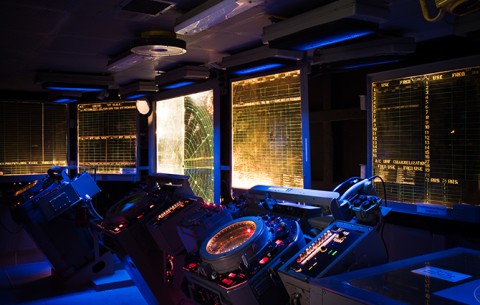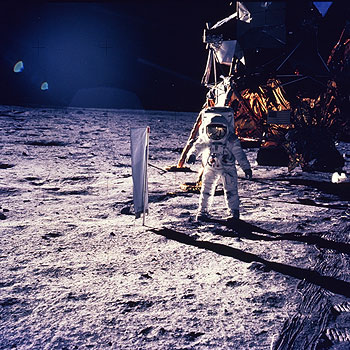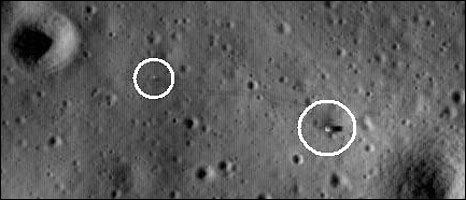Houston has a problem with the allocation of the soon-to-be retired space shuttles:
Which city, in the whole of the United States, would the average person associate most clearly with America’s towering achievements, and no few sorrows, over the past half century of sending men and women into space? Why, Houston, of course — home of the Johnson Space Centre, where NASA’s mission control is located. We know this from all that has been said and done in the past. The first words Neil Armstrong uttered as Apollo 11 touched down on the Moon in 1969 were: “Houston, Tranquility base here — the Eagle has landed.”
The name of Houston will forever be associated with the manned exploration of space. No astronaut ever radioed laconically back from a crippled spaceship, “Manhattan, we have a problem”. Yet, in NASA’s recent selection of the final destinations for its four extant space shuttles, now that the last operational ones are about to be pensioned off, New York City will get Enterprise, the first of the shuttles that was rolled out in 1976, while Houston gets snubbed.
A score or more of museums and other institutions around the country competed for the honour of having a shuttle in their permanent collection. Apart from offering an appealing display, each had to be ready to stump up $28.8m to cover the cost of preparing and transporting the winged spacecraft to its new location. Of the three other remaining shuttles, Discovery is destined for the Smithsonian’s National Air and Space Museum annexe outside Washington, DC. After the launch in late June of the 135th (and last) mission in the shuttle programme, Atlantis will remain in Florida to be exhibited at the Kennedy Space Centre’s visitor centre.
Meanwhile, after its own final mission later this month, Endeavour, the youngest of the shuttles, will be ferried to Los Angeles to end its days in the California Science Centre, alongside existing exhibits of the Mercury, Gemini and Apollo spacecraft, and close to the old Rockwell plant in Palmdale where the shuttle was developed. Meanwhile, just up the road, at Edwards Air Force Base, is the runway where nearly half of all shuttle flights touched down.






